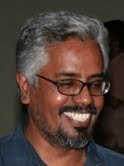The Oscars
Hollywood & Its Suprises
For all the antagonism one may harbour for Hollywood – for its unabashed Americana, its worldwide hegemony over other cinemas, it sheer size etc – once cannot escape the fact that it succeeds in producing surprises. These surprises are not merely technical or technological alone, but also thematic in the most disturbing and soul-stirring ways. Take for instance the recent Oscars, it most celebrated annual event. It in fact celebrated Hollywood's multiculturalism (an Asian, And Lee, bagged the prestigious award) its penchant for diversity and thematic freshness. The films that occupied the centrestage say a lot about its eclecticism (something certainly confined to English-productions, which mean Hollywood itself) and hunger for thematic diversity. Ang Lee's 'Brokeback Mountain' is about the relationship between a gay couple, Paul Higgis' 'Crash' is about the underside of racial relationship of a multi-racial US society, 'Capote' is based upon the life and times of the legendary writer, and Memoirs of a Geisha is an exotic look into another culture, this time the life of the geishas in Japan. While the latter looks out, the others – the major Oscar contenders – take a hard and deep look into American society, at its social innards, enigmatic paradoxes and suppressed sexuality.
Interestingly, Brokeback Mountain is a very typical and conventional love story by all means. The lovers meet in an idyllic and desolate circumstance, fall in love, the exigencies of life force them apart into different paths, and years later, when the old lovers meet, and rediscover their passion, love erupts leading their life to a tragic end. It is like any other quadrangular love story. Only that in this case, the lovers are both male.
The way homosexual love is placed in the narrative is interesting. For one, its origins run back to 'primitive' times (the wild west, the cow boys..) and to an untamed, virtually animal nature. It stands in very sharp contrast to the claustrophobic and planned urban landscapes and interiors of the second half of the film. While the heterosexual love in the second half is firmly placed within the urban family context, homosexuality is placed in a rural, wild, all-man past (no females at all in the first half that is dominated by immensely vast mountainscapes foregrounding the solitary togetherness of the duo). Evidently, the move, transformation or 'progress' from the 'unruly' freedom of nature (or natural freedom) to the restriction of culture or civilization is also one from a homosexual to a heterosexual love, though it erupts at the first provocation. Kudos to Ang Lee who dared to deal with an intense gay relationship in a very frontal and direct manner, never letting us to lose our involvement with it.
Though Brokeback Mountain deals with an intense theme in such daring ways, one would be more deeply shaken by Crash (Paul Higgis' debut film) for its complex and heart wrenching portrayal of the way racism works in US society. Maybe it didn't win the 'race' probably because it is an 'old theme' and has been dealt with by many talented filmmakers earlier also.


0 Comments:
Post a Comment
Subscribe to Post Comments [Atom]
<< Home